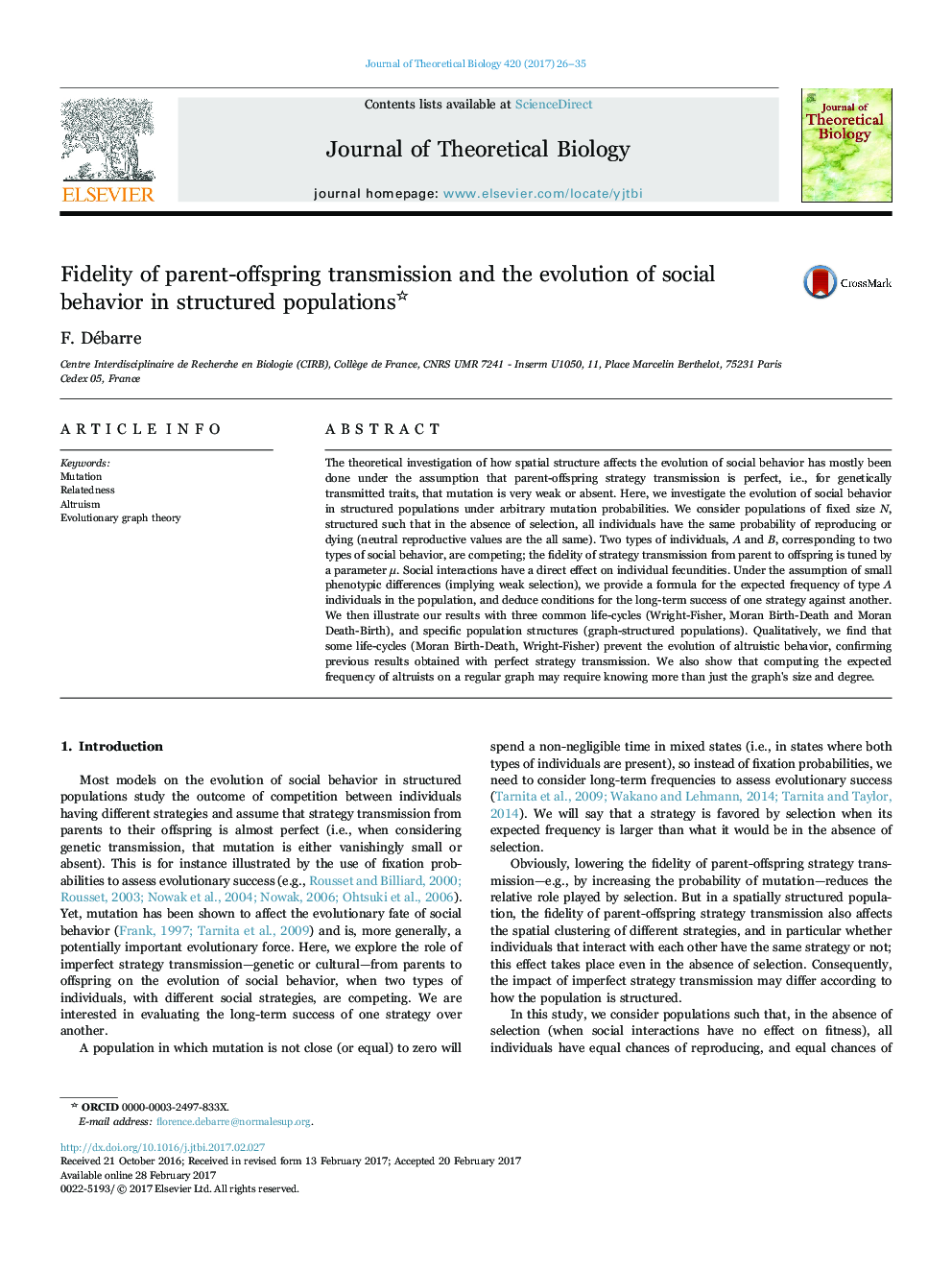| کد مقاله | کد نشریه | سال انتشار | مقاله انگلیسی | نسخه تمام متن |
|---|---|---|---|---|
| 5760041 | 1623790 | 2017 | 10 صفحه PDF | دانلود رایگان |
- The consideration of an understudied feature, imperfect parent-offspring strategy transmission.
- A life-cycle independent formula for the expected frequency of altruists in a spatially structured population.
- The generalization of qualitative results on the effects of specific life-cycles on the evolution of altruism.
The theoretical investigation of how spatial structure affects the evolution of social behavior has mostly been done under the assumption that parent-offspring strategy transmission is perfect, i.e., for genetically transmitted traits, that mutation is very weak or absent. Here, we investigate the evolution of social behavior in structured populations under arbitrary mutation probabilities. We consider populations of fixed size N, structured such that in the absence of selection, all individuals have the same probability of reproducing or dying (neutral reproductive values are the all same). Two types of individuals, A and B, corresponding to two types of social behavior, are competing; the fidelity of strategy transmission from parent to offspring is tuned by a parameter μ. Social interactions have a direct effect on individual fecundities. Under the assumption of small phenotypic differences (implying weak selection), we provide a formula for the expected frequency of type A individuals in the population, and deduce conditions for the long-term success of one strategy against another. We then illustrate our results with three common life-cycles (Wright-Fisher, Moran Birth-Death and Moran Death-Birth), and specific population structures (graph-structured populations). Qualitatively, we find that some life-cycles (Moran Birth-Death, Wright-Fisher) prevent the evolution of altruistic behavior, confirming previous results obtained with perfect strategy transmission. We also show that computing the expected frequency of altruists on a regular graph may require knowing more than just the graph's size and degree.
Journal: Journal of Theoretical Biology - Volume 420, 7 May 2017, Pages 26-35
